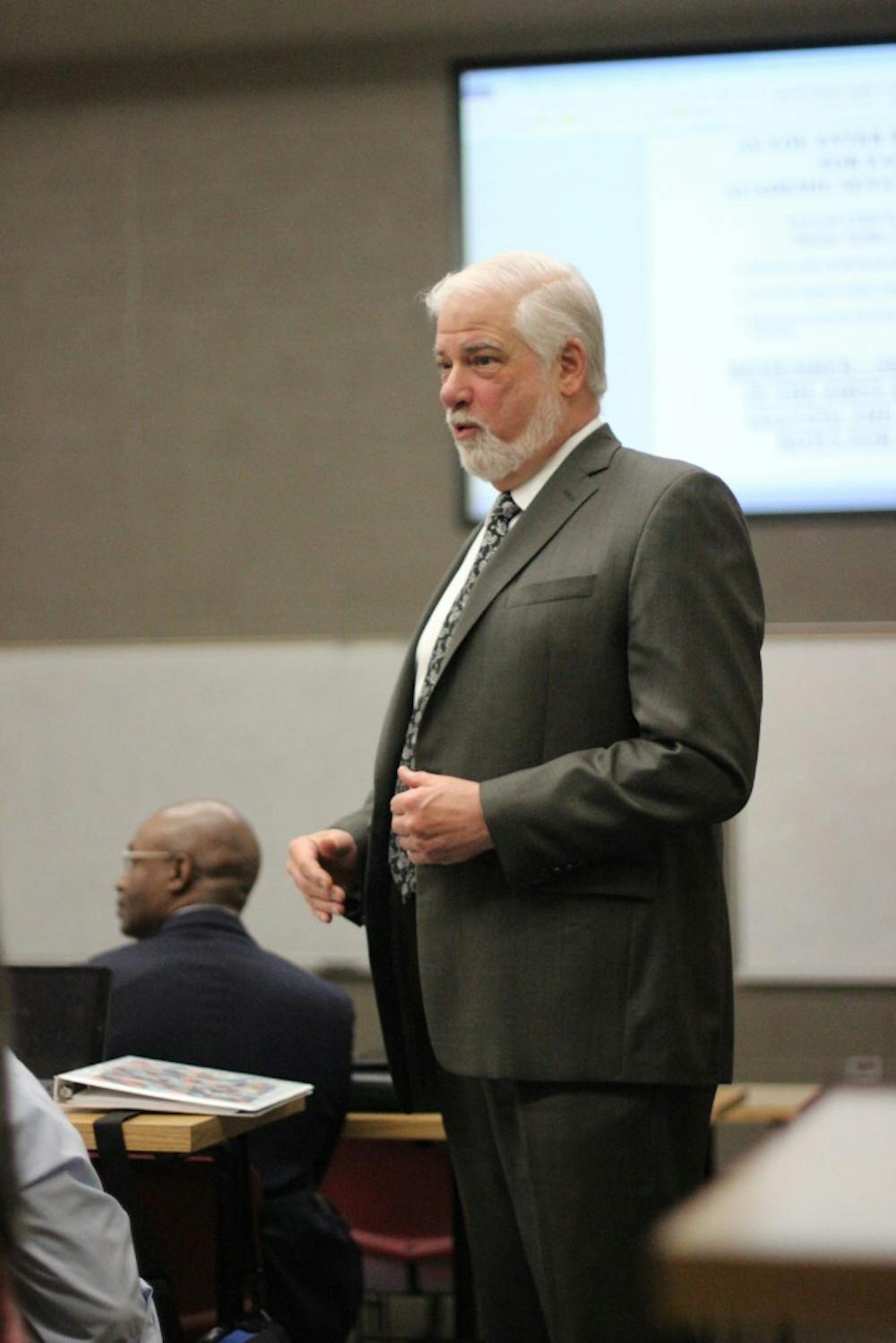Academic Senate discusses retention rates, Global Campus

Central Michigan University Provost Michael Gealt speaks with faculty and students at the Academic Senate meeting on Oct. 6 in Pearce Hall.
Provost Michael Gealt announced during Tuesday’s Academic Senate meeting that Central Michigan University will participate in a new initiative developed by the American Association of State Colleges and Universities.
The program, called “Re-Imagining the First Year,” aims to reconsider how students are introduced to college and how they can achieve greater success during their freshmen year.
The program is a three-year project involving 44 institutions. AASCU has received funding from the Bill and Melinda Gates Foundation and USA Funds.
Some of the goals Gealt listed for CMU with the program include re-conceptualizing academic advising and introducing students to interdisciplinary professionals.
Gealt presented line graphs showing that while the number of faculty at CMU has increased, student enrollment has decreased. The provost also displayed the retention rate for students based on their class standings: freshmen (78 percent), sophomores (89 percent), juniors (95 percent) and seniors (99 percent). Gealt said if the university could increase the freshmen retention rate to just 80 percent, the university would gain $830,000 for just that year, and $2 million if it stayed at through to graduation.
Senator Mary Senter said the changes indicated by the line graphs were positive, since more professors could spend one-on-one time with students.
“Having fewer students per faculty is better for students,” she said.
Senter also suggested the university could increase freshmen retention by expanding orientation to last more than a few days.
The provost also announced that the university’s Carnegie Classification had increased from an R3 research university to an R2.
Senator Adam Mock introduced a motion to adjust how transfer credits are considered by the university. Transfer credits are considered based on the numerical equivalent of a letter grade, not the grade itself. Students transferring to CMU must receive a C- or better in a class for it to transfer.
“The problem is CMU has decided to convert a C- to 1.7,” Mock said.
He added that another university might convert a C- to 1.67, and therefore not make the 1.7 requirement to transfer. Mock’s proposal would change the policy so only the letter grade is considered.
Senator Mark Deschaine said he was predisposed to support the motion, but wanted to know more before voting. The motion was postponed until the Feb. 23 Academic Senate meeting.
The Online Academic Program Board Committee discussed the recommendations they made to improve Global Campus.
Senter said she was concerned online classes could be used by students who would stay in their residence halls and not attend classes, thus not receiving one-on-one time with professors and classmates.
Peter Ross, Vice President of Global Campus, said more than 4,000 students use global campus, and that online classes were necessary to ensure global students could take courses necessary to graduate.



